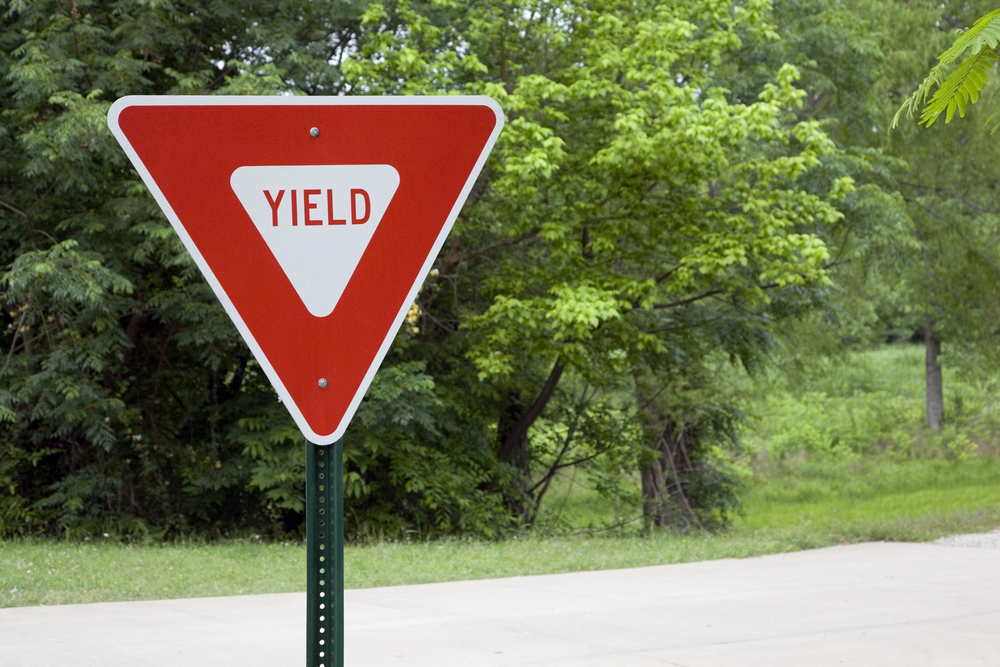INVALID FAILURE TO YIELD STOP LEADS COURT TO THROW OUT DRUG POSSESSION CHARGE
The Ohio Court of Appeals recently held that a traffic stop is not valid when officers incorrectly determined that a driver committed a traffic violation. When there is an objective lack of criminal activity, a traffic stop is unlawful – and anything found during the stop (i.e. marijuana possession or an OVI charge) will be thrown out . State v. Wilson, 2017-Ohio-9317.
In Wilson, the Defendant turned right onto a street in front of the arresting officer’s police cruiser. The officer incorrectly determined the Defendant turned quickly in front of the officer, leaving only a few feet between the two officers, and the officer had to quickly apply the breaks so as to avoid a collision. The officer initiated a traffic stop for a “Failure to Yield” violation. During the traffic stop, the officer found drugs and a firearm in the vehicle, and the Defendant was placed under arrest for possession of drugs and improperly handling a firearm. The Defendant filed a motion to suppress evidence from the traffic stop.
REASONABLE SUSPICION
The United States Supreme Court has held that police officers may conduct a traffic stop when officers have a reasonable belief that criminal activity (such as a traffic violation) has occurred. Terry v. Ohio, 392 U.S. 1, 88 S.Ct. (1968) Following a traffic stop, officers may continue their investigation of criminal activity should more evidence of other criminal acts become apparent. State v. Mays, 2008-Ohio-4539
In Wilson, the state argued that the determination of whether the officers had a reasonable belief of criminal activity should be made by giving the officers the benefit of the doubt in the moment, and not after reviewing the footage from the police cruiser camera and making a determination.
However, the Court in Wilson agreed with the trial court, which used of the video to determine whether the officer had a reasonable belief that a traffic violation had occurred. The Court did not find any error in the trial court’s legal conclusion that the officers lacked a reasonable suspicion of criminal activity.

FAILURE TO YIELD (ORC 4511.43(A))
In order to justify a violation of Ohio Revised Code 4511.43(A) (Failure to Yield), the officer must be able to show his vehicle was unable to proceed uninterrupted in a lawful manner in the direction in which it was moving due to the Defendant’s vehicle approaching from a different direction.
After reviewing the officer’s cruiser video, the trial court found that the officers were speeding when the Defendant turned in front of them and that the officer did not have to apply his brakes with force, but only had to decelerate slightly.
The Court in Wilson concluded, “Given the trial court’s findings, which are substantially supported by the record, the officers had no reasonable suspicion that [the Defendant’s] actions created an “immediate hazard” and that he failed to yield when he turned in front of the officer. In the absence of a reasonable suspicion of criminal activity, the trial court did not err in suppressing any evidence found as a result of the unlawful stop.” State v. Wilson, 2017-Ohio-9317.
It is important to contact an attorney who is knowledgeable about all possible defenses available to you, including whether the officer pulled you over based on incorrect application of traffic laws. If you have questions about your Columbus traffic or criminal charges, talk to our defense attorneys at 614-361-2804.
Written by Anthony Iori, Esq., Riddell Law Associate



